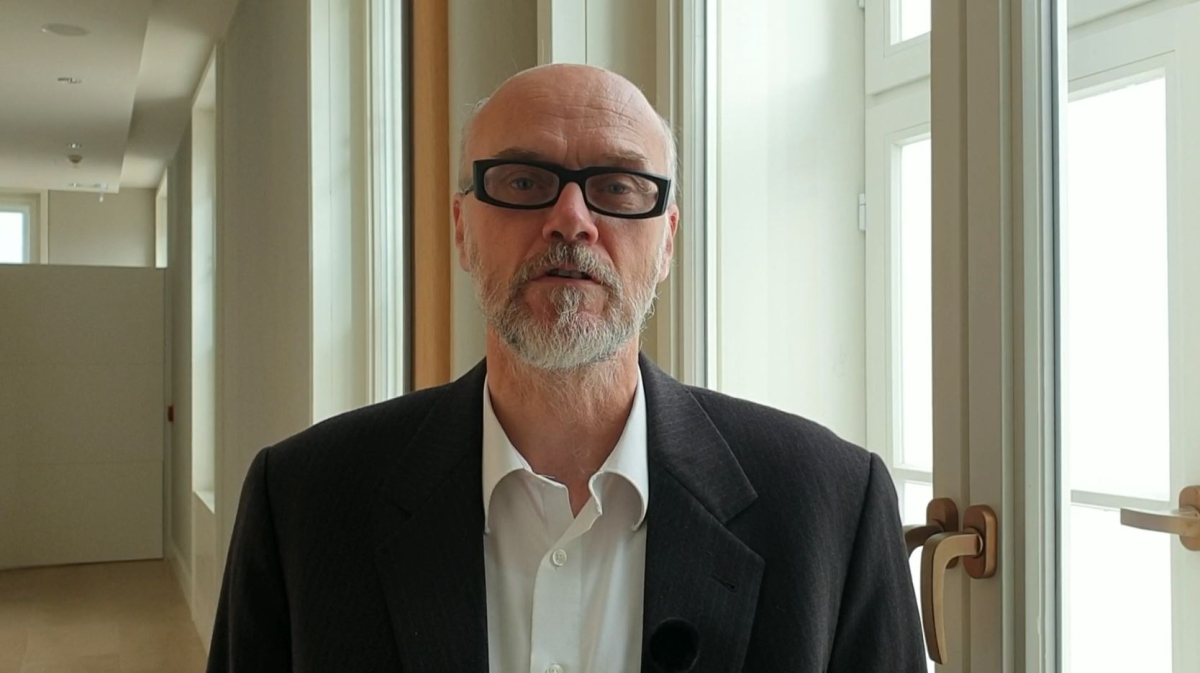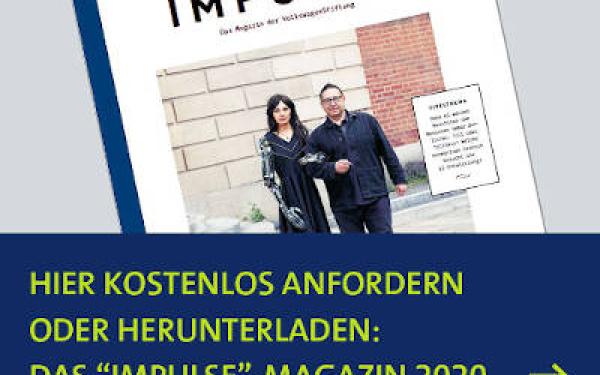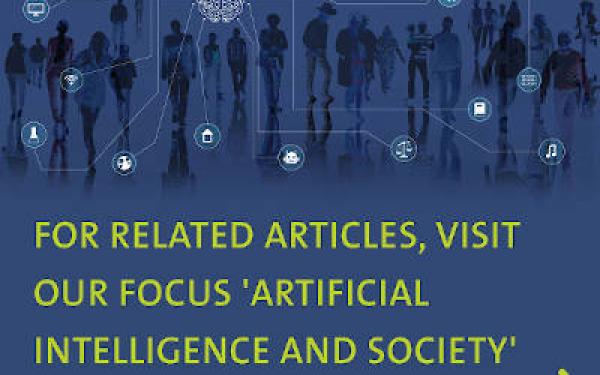
Wikimedia Commons - public domain - Anonymous
Ethics for Nerds
Computer scientists tend to frown upon ethics as a "wishy-washy" subject, although there are very good reasons why it should be part of their studies. Those who do look into it have to expect the consequences: Their perceptions change, sometimes even their whole life, and in some places disciplines finally come together. Insights into an academic shift.
Sarah Sterz (25) earned her bachelor's degree in computer science, switched to a master's degree in philosophy and is now heading for her doctorate in this discipline. Nikolai Käfer (25) stayed in computer science and is about to take his master's degree. Later on he wants to work for tech companies: "But only if they are aware of their ethical responsibility". Sterz and Käfer have two things in common. They studied computer science at the University of Saarbrücken and they took a course in "Ethics for Nerds". The lectures and associated course work opened up new horizons for both of them. The knowledge they acquired in moral philosophy, assessment of technological innovation, machine ethics and argumentation theory changed their views and brought about a change of awareness that impacted on their self-conception.
Ethics for Nerds' made me realize just how much power we actually have and the responsibility we should subsequently be aware of
"'Ethics for Nerds' made me realize just how much power we actually have and the responsibility we should subsequently be aware of," says Käfer. And his fellow student says: "It is inacceptable that computer scientists can complete their studies without ever having heard anything about the morality or responsibility." The two voices from Saarbrücken stand for a worldwide trend. In the midst of the gold-digger mood surrounding AI, more and more techies are asking themselves how to face up to the moral issues and how to keep a clear conscience: What attitude should I adopt towards my work and what am I allowed to do? Big Data, algorithms and artificial intelligence blur the boundaries between light and shadow, making any sharp distinction between good and bad almost impossible. Dual use is lurking everywhere, and naivety or lack of knowledge can end in blunder. Take the "racist" soap dispenser, for instance: Developed with white test persons, the sensors failed to react when a person of color tried to use the dispenser.
Video Interview with the 'Ethics for Nerds' initiators (in German)

Dilemmas have always accompanied the engineering and technical sciences. "If we have made any progress in software development, it's in not doing certain things," says Robert C. Martin, the American founder of the Clean Code movement. "Uncle Bob," as he is called by his supporters, pleads for the utmost caution in software development. His lectures on programming and ethics chalk up millions of clicks on YouTube.
Red lines and sharpening of the senses
Google, for one, has already experienced the forces released by the longing for a kind of Hippocratic Oath for computer science in times of Big Data and AI. For years, Google employees have been learning how the company interprets its lofty corporate code "Do the right thing": in monetary terms. But developing technologies for the ruling powers in Beijing and AI-controlled image recognition software for drones commissioned by the Pentagon turned Google employees against their company so vehemently that in the summer of 2019 the US technology magazine "Wired" wrote about a "civil war" in Mountain View. The rebellion clearly illustrates that certain red lines make even convinced tech disciples pause to think: Should we be allowed to do all kinds of things simply because we can?
It's all about sharpening the senses and equipping students to deal with potential dilemmas
This is where "Ethics for Nerds" comes in. "It's all about sharpening the senses and equipping students to deal with potential dilemmas," explains the professor of computer science Holger Hermanns. He initiated the course about five years ago and soon found like-minded colleagues. In January 2019, the Stifterverband, a donors' association for the promotion of science and the humanities in Germany, praised the module offered by Hermanns and Kevin Baum as a "pearl" of higher education, thus highlighting it among the many ethics events in AI-relevant subjects.
In fact, ethics courses in computer science are becoming very popular at German universities. The universities in Bamberg and Potsdam as well as the technical universities in Kaiserslautern and Munich have been quick to fall in line. The driving force behind the movement is the Gesellschaft für Informatik (GI): "Programmers must also consider the possible effects of their work. Adopting an attitude of being isolated from the social consequences of what they do is outdated," says GI President Hannes Federrath. Strengthening ethical awareness in computer science is "a matter very close to his heart".
Many now think like Federrath. The GI has a team on artificial intelligence, another on computer science and society, and there is also a specialist group focused on computer science and ethics, which is also taking a clear political position with demands for the outlawing of autonomous weapons systems under international law. The "conscience bits" on the GI website describe concrete problem issues and dilemmas that computer scientists encounter in the practice. The biggest associated milestone the GI reached so far was in March 2016, when after lengthy controversial debates it reformed its curriculum recommendations. Since then, its position is that ethics should be included in all courses of study in pure computer science. Actually, this is still far from being the case everywhere. The recommendations are just that: recommendations – but not enforceable regulations.

Since the Middle Ages, the "Tree of Knowledge of Good and Evil" has usually been depicted as an apple tree in depictions of the Fall of Man.
In Saarbrücken, "Ethics for Nerds" is an elective course. Students can take the course and acquire ECTS points, but they can also choose not to do so. "Taking 'Ethics for Nerds' is voluntary – and perhaps that is why it is so popular and successful," says Hermanns. The teachers are intrinsically motivated, the students feel that. "To force them to participate might be counterproductive." Even if Hermanns can "well imagine" an "obligatory ethics offer" for pure computer scientists, the implementation raises questions for him to which he himself does not know the answer. One of them is: Which compulsory material should give way to ethics? "Classical computer science in Saarbrücken is extremely successful, not least because its contents are very precisely coordinated," Hermanns points out – and is not alone in this.
Providing a course of study that is not directly related to the subject matter can easily backfire
"Providing a course of study that is not directly related to the subject matter can easily backfire," says Armin Grunwald. The technology philosopher at the Karlsruhe Institute of Technology (KIT) is head of the Office of Technology Assessment of the German Bundestag, has been following the discourse for quite some time, and advises students to remain calm and to divide the work: Students must first and foremost become good engineers, but that should not mean "not to confront them with ethical questions and the consequences of their work." The "nerd ethics" that Grunwald has in mind can best be anchored where ethicists, philosophers, technical and engineering scientists "contribute their competencies to the teaching" of engineering and computer science in a topic-related and selective manner. In plain language: "It's about cooperation in teaching".
Building bridges through teaching
That would be a science policy sensation. While interdisciplinary cooperation has so far mainly been in the realm of research, AI development could now build new bridges between the faculties in the area of teaching. But this is anything but easy in the real world of everyday university life. While collaboration in research usually brings money and reputation, there has so far been no financial incentive for interdisciplinary teaching assignments. Cooperation in teaching stands and falls with the goodwill of the professors – and their work loads.

Detail of "Weltchronik. Böhmen (Prag)", Rudolf von Ems, 14. th Century.
"Teaching ethics in AI-relevant subjects is important," says Michael Sommer, chairman of the "Philosophischer Fakultätentag" (representation of the humanities, cultural studies, and social sciences). However, only philosophers "with chairs embedded in the philosophical faculties" would have the necessary expertise. According to Sommer, the increasing demand for ethics courses would therefore inevitably have to be met by creating additional ethics professorships. But: "Within the universities, I am unfortunately currently aware of a tendency to reallocate professorships of philosophy to AI-relevant subjects when new appointments are made. This weakens the field of philosophy – without making AI any stronger".
As clear as Sommer's position is, the logic does not convince everyone. "We have to think very carefully about what form 'ethics for information technology' can take and how it can best be communicated," explains Martina Schraudner from the board of the Academy of Engineering Sciences acatech. The aim must be to "sensitize" the students, to give them ethical guidelines and an insight into when interdisciplinary exchange is necessary and purposeful. "A second degree in philosophy for all", says Schraudner, "is certainly not the answer".
A second degree in philosophy for all is certainly not the answer
This is also how Dominik Herrmann sees it. The professor for privacy and internet security at the University of Bamberg is on the board of the German Informatics Society and has been giving ethics courses for techies for some time now. "Ethics is treated as a wishy-washy subject by computer scientists," he says. To stay with it, they need an "especially practice-oriented approach". So Herrmann's student semester assignment is to program software for staff selection. "This quickly makes them wake up to the inherent dilemmas and risk of discrimination."
Current real-life cases are also what the students appreciate in "Ethics for Nerds". The programming tasks are designed by the technicians around Holger Hermanns, and philosophers, especially Kevin Baum, contribute the necessary dose of knowledge in moral philosophy, argumentation theory and ethics. In Saarbrücken, all this works just as smoothly as the financing. The money for the course is provided by professors like Hermanns from their chair funds.
Recalling the beginnings, he says: "It was relatively smooth sailing." Today, students of computer science write their bachelor and master theses with the philosophers and vice versa. And some even base their doctoral theses on "Ethics and AI". In Saarbrücken, the small course "Ethics for Nerds" ultimately proved to be the beginning of a close interdisciplinary friendship. "That's truly amazing!" says Hermanns. Interdisciplinary research projects already exist – and more are planned.
Professor Hermanns on the origin of 'Ethics for Nerds': "It was a long time before ethical matters have been an issue for me. I first became concerned a few years ago. At that time, I was involved in the preparation of a major research proposal. At a very late stage, it turned out that one of the most important application studies was to be the 'controlled termination of non-cooperating space objects'. It remained unclear whether this was to be about space debris or Star Wars. I was alarmed and asked my colleagues for their views. That was the beginning of 'Ethics for Nerds'".

Holger Hermanns teaches computer science at the Saarland University.


